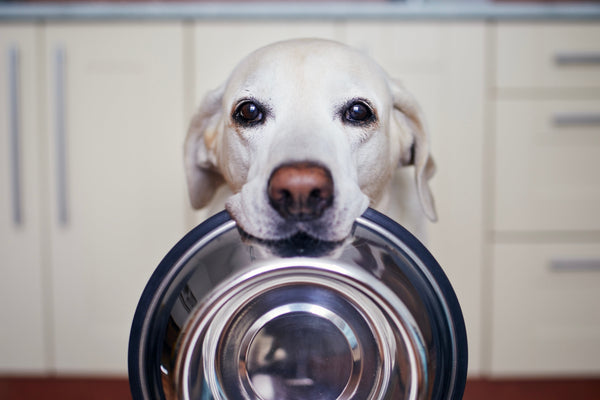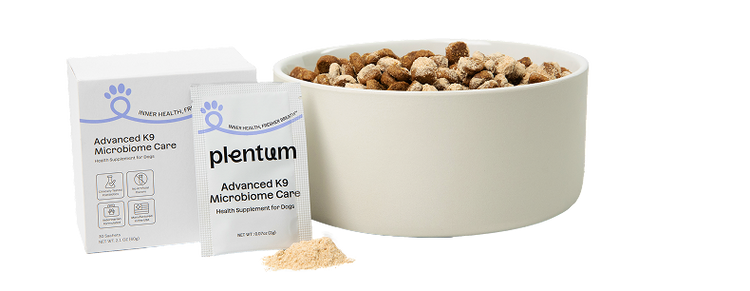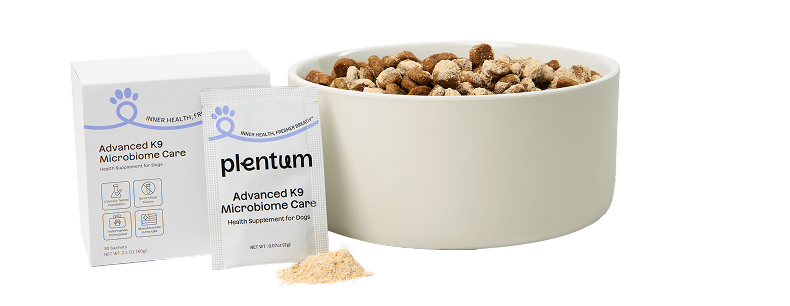Why Is My Dog So Gassy? 13 Common Triggers (and Quick Fixes)
Is your dog's gas clearing the room? We uncover 13 common triggers, from diet to hidden health issues and provide simple effective solutions to stop the stink and improve digestion.
Is your dog's gas clearing the room? We uncover 13 common triggers, from diet to hidden health issues and provide simple effective solutions to stop the stink and improve digestion.

It’s a familiar scene for many dog owners: you’re relaxing on the couch when a silent, foul-smelling cloud wafts through the room. Your eyes immediately go to the dog, who looks back with perfect innocence. Yes, dogs fart. It’s a normal part of their digestive process, just like it is for us. But if you find yourself constantly asking, “why is my dog so gassy?” or dealing with a level of flatulence that could clear a room, it might be more than just a funny quirk. A dog farting a lot can be a sign of digestive distress or an underlying issue that needs attention.
Understanding why your dog keeps farting is the first step to finding a solution. The gas in your dog’s digestive system comes from two main sources: swallowed air (aerophagia) and bacterial fermentation in the colon. Gas from swallowed air is usually odorless, while gas from fermentation is responsible for those truly smelly dog farts.
This guide will walk you through the 13 most common triggers for excessive gas in dogs, from simple dietary mistakes to more serious health concerns, and provide quick fixes to help bring fresh air back into your home.
The reasons behind your dog’s gas can often be traced back to three key areas: their diet, their behaviors and lifestyle, or an underlying medical condition.

What your dog eats is the number one cause of gas. If your dog has bad gas suddenly, it’s very likely linked to something they consumed.
Cheap dog foods are often packed with fillers and poorly digestible ingredients. When your dog can't break down these ingredients in the small intestine, they pass into the colon, where gut bacteria have a feast. This fermentation process produces a large amount of gas.
Just like with people, certain foods are notorious for causing gas.
Giving your dog fatty or spicy leftovers from your plate is a common cause of digestive upset. These rich foods can be difficult for a dog’s system to process, leading to indigestion and foul-smelling gas.
Switching your dog's food abruptly can shock their digestive system. The gut microbiome is adapted to a specific diet, and a sudden change doesn't give it time to adjust, resulting in gas and diarrhea.
If your dog has a habit of raiding the trash or eating things they find on walks (like spoiled food or animal feces), they can ingest harmful bacteria. This disrupts their gut balance and can cause a sudden, severe case of smelly gas, often called "garbage gut".
Chronic gas can be a primary symptom of a food allergy or intolerance. This is an immune response to an ingredient, usually a protein like chicken or beef, that causes inflammation in the GI tract, impairing digestion and leading to gas.
Try exploring how probiotics can help dogs with allergies and sensitivities for added digestive support.
While intended to be healthier, some specialized diets can cause gas. Many grain-free foods replace grains with high concentrations of gas-producing legumes like peas and lentils. Similarly, transitioning to a raw food diet can cause a temporary increase in gas as your dog's gut microbiome adjusts to the new ingredients.

Sometimes, it’s not just what your dog eats, but how they eat and live.
Dogs that gulp down their food also swallow a lot of air. This air, known as aerophagia, gets trapped in the digestive tract and must be expelled as either a burp or a fart. This type of gas is usually loud but not smelly.
Brachycephalic (flat-faced) breeds like Pugs, Bulldogs, and Boston Terriers are naturally more gassy. Their shortened snouts cause them to swallow more air during normal breathing, eating, and drinking, leading to chronic flatulence.
Overweight and inactive dogs are at a higher risk for chronic gas. A lack of exercise slows down the digestive process, allowing more time for food to ferment and gas to build up in the intestines.
Maintaining mobility with supplements that support senior dogs can improve digestion.

If you’ve addressed diet and lifestyle and your dog is still gassy, it’s time to consider a medical cause.
Persistent gas, especially when paired with other symptoms like diarrhea or vomiting, can be a sign of a GI disease. Conditions like Inflammatory Bowel Disease (IBD), Irritable Bowel Syndrome (IBS), and colitis cause inflammation that disrupts normal digestion and leads to gas.
Some conditions prevent the body from properly absorbing nutrients. Exocrine Pancreatic Insufficiency (EPI), for example, is a disease where the pancreas doesn't produce enough digestive enzymes. This leaves a large amount of undigested food for gut bacteria to ferment, causing severe gas, diarrhea, and weight loss.
Infections from parasites like worms or Giardia can damage the intestinal lining, leading to inflammation and poor nutrient absorption, which in turn causes gas.

Now that you know what causes gas in dogs, here are some effective ways to manage it.

While occasional gas is normal, you should contact your veterinarian if your dog’s flatulence is persistent and accompanied by any of these other symptoms:

It is critical for every dog owner to know the difference between simple gas and Gastric Dilatation-Volvulus (GDV), or bloat. GDV is a life-threatening emergency where the stomach fills with gas and twists, cutting off blood flow. It can be fatal within hours.
|
Symptoms of Excessive Gas (Benign) |
Symptoms of Bloat (GDV) - EMERGENCY |
|
Audible farting or belching |
Unproductive retching (trying to vomit, but only producing foam) |
|
Mild stomach gurgling |
Visibly swollen, hard, "drum-like" abdomen |
|
Dog seems relatively comfortable and acts normal |
Extreme restlessness, pacing, inability to get comfortable |
|
May still be willing to eat, drink, and play |
Signs of severe pain (whining, groaning, prayer position) |
|
Symptoms are often intermittent |
Pale or bluish gums, rapid/shallow breathing, excessive drooling |
If you see any signs of GDV, seek immediate emergency veterinary care. If you see any signs of GDV, seek immediate emergency veterinary care.
Learn to identify gut health symptoms in dogs that shouldn’t be ignored to act fast.
A gassy dog can be a smelly nuisance, but it’s often a manageable issue. By carefully examining your dog’s diet, habits, and overall health, you can identify the trigger and take steps to reduce their flatulence. Simple changes like switching to a higher-quality food, using a slow-feeder, and ensuring regular exercise can make a world of difference.
However, never ignore gas when it’s paired with other signs of illness. You know your dog best, so if something seems off, trust your instincts. A consultation with your veterinarian is the best way to rule out serious issues and ensure your furry friend is happy, healthy, and a little less gassy.

Identify: Check stool color; yellow often means indigestion, while black or bloody stool requires immediate veterinary attention. Manage: Modern care prioritizes postbiotics for dogs and fiber over automatic antibiotics for...

A dog longevity supplement must enhance healthspan through its ability to fight chronic inflammation which causes aging. The aging gut signature represents an unbalanced gut microbiome which produces inflammation that...

Poor gut health in dogs doesn't just cause stomach upset. It can also be the hidden root of skin problems, recurring infections, and even anxiety. The most common signs of...

The purpose of longevity support in dogs is to enhance their health span through cellular aging prevention rather than extending their lifespan. The main factors that lead to aging in...

